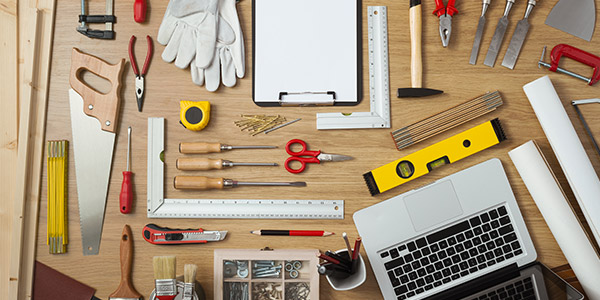Homebuyers
Three Key Things to Consider Before Buying a Fixer-Upper
March 15, 2016
When deciding to buy a home, many people wonder if they should try to save money with a fixer-upper, or if they should spring for an already perfectly livable house. There isn't one right answer and sometimes, either option would be good for a person or couple. Other times, it is clear a run-down home will wind up costing much more than the buyer ever expected.
To avoid overpaying for a beat-up house, there are some questions buyers should ask themselves. By laying out the facts and finding out your true feelings about the concept of fixing up a house, the decision of whether or not to buy will become easier to make.
Budget for the Unexpected
The first question you need to ask yourself is whether you can afford the home along with the renovations. The down payment might be within your range, but after that, how much savings do you have to go toward renovations? The best way to determine whether you have enough is to try to calculate how much you will need to spend on repairs and upgrades. This Old House advised prospective buyers to hire an inspector to look at the house.1 The inspector will be able to point out all the flaws, from structural issues to electrical problems. With this information, begin research to find out how much all of the problems will cost to fix.
Sometimes, the problems that need to be addressed won't raise the value of the home. A commonly overlooked yet important aspect to consider when buying a home is the resale value. For instance, a kitchen renovation will likely up the value of the home because this is what buyers like to see. However, changes to the plumbing or electrical systems are overlooked by many buyers, so aren't translated into as lucrative upgrades as others. If the house you are considering mainly has problems like these, many real estate agents will advise you to move on.
Once you know how much the necessary renovations are going to cost, factor them into the asking price. Be sure to explain to the seller why you are lowering the price, U.S. & World News Report suggested.2 For example, if the furnace will need replacing in the first couple years after purchase, explain this, state the price of a new furnace, and show how it affected your offer.
Pay Attention to Its Surroundings
The quality of a home isn't the only factor that goes into the resale value of it. Many times, the neighborhood has a lot to do with how attractive a home is. Sometimes, the nicest house on the block is difficult to sell. U.S. & World News Report explained this is because the people who can afford the nicest house on the block are probably looking to live in a nicer neighborhood.
Instead, prospective home buyers wishing to buy a home to fix up should seek out a home that has room to grow into the neighborhood. By choosing a less-expensive house in a popular neighborhood, the resale value has more potential to grow.
Drew and Jonathan Scott, brothers who made renovating houses for resale their living and hosts of the HGTV show, Property Brothers, told PopSugar it's important to work with a real estate agent to find a good neighborhood to buy into.3 Know what amenities are in the areas, such as public transportation, the quality of schools, and nearby stores. Also, getting an idea of the future of the neighborhood can be important to the future value of the homes nearby. Ask the city planning department if there are any plans to develop near the location of the house you're considering.
Know What You Want
Before investing in a home you want to make changes to, it's important to know which changes you want to make. The inspector will be able to tell you the things you need to make so the house will be livable and safe. However, if you enter into a sale without direction, you could wind up making unnecessary renovations or becoming overwhelmed with the enormity of the project you took on.
Realtor.com explained there are generally two types of fixer-uppers: unappealing homes and complete disasters.4 An unappealing home may need a paint job or new carpeting. However, some of the worst homes cannot be salvaged. Issues like out-of-control mold or structural deficiencies probably aren't worth the investment.
However, if the changes you want to make are small, it will probably be worth it. For instance, carpeting can change the entire feel of a room, but it doesn't take a lot of effort to change it, Drew explained to PopSugar. There will be some projects that you may even be able to do by yourself, like painting, HouseLogic explained.5 However, other issues, such as electrical work, will probably need the expertise of a professional.
Taking on a project of this magnitude is a big commitment. HouseLogic explained you may have to take time off of work to get the renovations completed. Plus, the atmosphere will inherently be stressful. It will be a mess and it will be noisy. For newlyweds looking to invest in a fixer-upper as their first house, this could cause additional stress, both emotional and financial, to the changing relationship dynamic.
In any case, buying a fixer-upper can be worth it. For many people, it is a fun way to grow an investment. However, you must research all aspects of it before signing on to the purchase of the house.
Sources
1 This Old House
2 U.S. News & World Report
3 PopSugar
4 Realtor.com
5 HouseLogic





 Smart Moves Start Here.
Smart Moves Start Here.